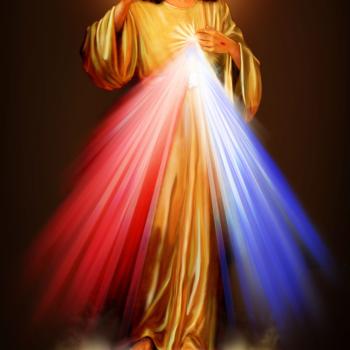I was at a confirmation not too many moons ago. At the confirmation, the bishop noted that the prior bishop and the one currently running the diocese had practiced quizzing the candidates. He had thought about asking the candidates a simple question like “What is the significance and meaning of the Incarnation?” After a few chuckles were exchanged – and I imagine some worried looks – the bishop stated that he was old enough that he would continue doing things the way he had and not quiz the candidates.
A most cursory explanation of the Incarnation would be to quote the Gospel of John, “And the Word became flesh….” That doesn’t really give us the significance (on its own), and there is a lot more meaning to tease out. To begin to understand the significance is to understand that the Incarnation is one of the great scandals of Christianity. Much of the world’s understanding of God – and this is very much true today – is adversarial: the God that takes and gives. One of the most absurd ideas is the idea that one could be a brother of God, but we believe it to be true. And it is not as if Christianity isn’t lacking in the imagery of Lord and servant. One need only look at the Job or Exodus. In the New Testament, we have much Lord and subject relations in Revelation, and of course it hasn’t been that long since we celebrated Christ the King Sunday. As I consider the question anew, I can see that I could write a small thesis on just one part of the Incarnation, and people far more capable than myself have done so. To conclude this thought: not only is God the Lord of Lords and King of kings, but he was one of us.
One doesn’t have to look far within our tradition to see flesh used as a negative. Jesus himself says in Matthew 26:41, “Watch and pray that you may not undergo the test. The spirit is willing, but the flesh is weak.” It is quite interesting juxtaposed against John 1:14, “And the Word became flesh.” (This isn’t intended to be exegesis by the way.) As persons, our tendency is to see flesh, indeed our humanity, as the obstacle to righteousness or holiness. Sure, Adam and Eve were able to enjoy communion with God and humanity, but since their sin, the two have been seen to be opposed. (On a tangential note, there is a certain popularity in saying that being a good person doesn’t necessarily make one a good Christian. While true enough, it certainly isn’t an impediment, and I don’t think I’ve seen a long term good Christian who wasn’t a good person.) Through Christ, we are able to see Godliness is not opposed to humanity. We do have the examples of Mary and Elijah (to think of two) who were very holy and enjoyed God’s favor and those examples have their purposes, but it is very significant that God himself took on flesh.
There is always the temptation to move over to other mysteries. And I won’t disappoint. The Incarnation is significant to the Paschal Mystery. There have been many attempts to reconcile God and man that don’t have God sacrificing Himself. Abraham being called upon to sacrifice Isaac would be one example. God of course provided a ram in that instance. For the Paschal Mystery to occur, Christ must enter the world. And so we have another answer to the question of the necessity of the Incarnation.
In writing on this, I must confess to being pained by the inadequacy of my own education. There have been volumes written about the Incarnation. I would have loved to have interjected analogies and reflections from the Church Fathers or the Saints. I have largely avoided theology here at Vox Nova because I don’t have too many interesting things to say. What I have written above certainly doesn’t qualify as interesting. My hope is that I haven’t written anything grossly or even borderline heretical. I could prove mistaken, but I believe my exploration above was pretty textbook. My purpose behind doing this is that I think it is valuable to personally explore essential matters of our faith. Having done so publicly, I hope I’ve allowed myself to be more thoughtful than were I not to have an audience. If you think such a thing is worthwhile, feel free yourself to answer the question, “What is the significance and meaning of the Incarnation?” in the combox below.












